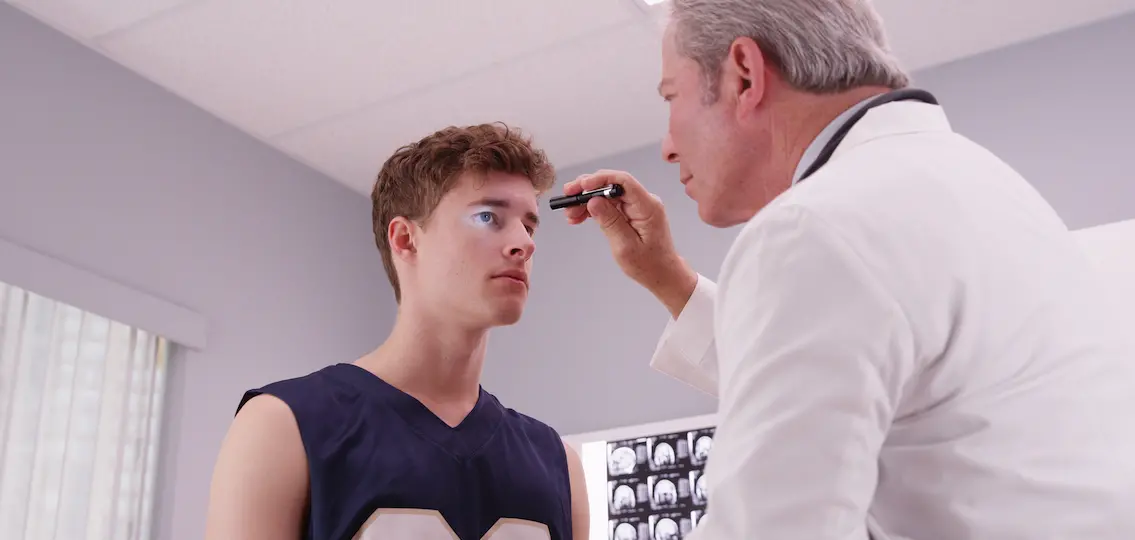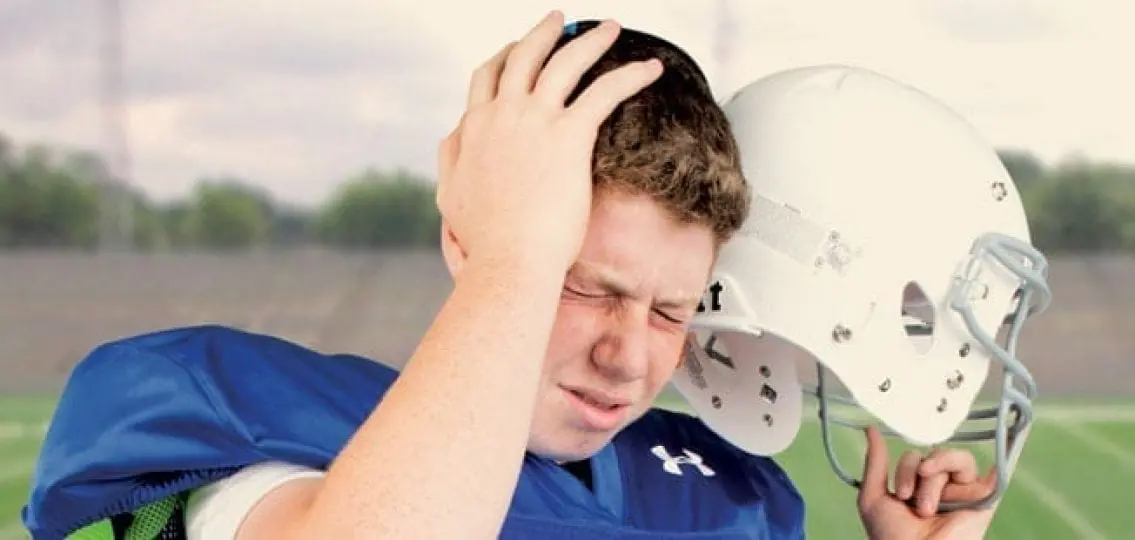Back to school means back to sports — and a risk for concussion. Your Teen asked Dr. Richard Figler, co-executive director of Cleveland Clinic’s Concussion Center, for the latest on treating the condition.

Q: What has changed in concussion treatment in the past five years?
Figler: Probably the single biggest change is that there is much greater awareness, not only on the parts of athletes themselves but also parents and coaches. All fifty states now have laws to protect young athletes and to educate parents and coaches so that they can recognize concussion symptoms and remove those athletes from practice or competition. These laws have improved everyone’s understanding of concussions and helped to educate athletes, parents, and coaches on how to recognize and respond to a potential brain injury.
Q: What early detection efforts are most effective?
Figler: Education and awareness are the best we have for early detection of the signs and symptoms of a concussion. Perhaps the most important tool is a symptom checklist that helps to monitor symptom recovery and guide treatment options. Another tool that can help is baseline testing—now standard in high schools—which helps to keep a record of an athlete’s history with concussions.
We know that nearly every high school has an athletic trainer—but that trainer can’t be at every practice for every sport. So coaches really are the key component for early detection. Studies show that sometimes kids are unaware they’ve been injured, or will intentionally hide symptoms because they don’t want to leave the field or let their teammates down. We know that the brain begins the healing process right after injury, but there is a window of time immediately after an injury, when you can either assist in recovery, or potentially delay or lengthen recovery time depending upon how you respond. When a coach is aware of symptoms consistent with a concussion and pulls a kid from the field when they observe these symptoms, we typically see much less severe injuries and faster recovery times.
Q: Has there been an increase in the number of concussions in teenage athletes?
Figler: Well, the number of reported injuries has definitely increased because awareness is greater, but in all likelihood the number of injuries is probably about the same. People are simply more aware of symptoms now than in previous years and more likely to recognize when they have been injured.
Q: Have there been any changes in concussion treatment?
Figler: There has been a fairly big shift in treatment. The pendulum has swung away from completely shutting down all brain stimulation and avoiding noise, light, television, and reading because we have found that a completely inactive brain that receives no stimulation just stagnates. The model now is what we call “relative rest.” We want these athletes to slow down or stop their activities to the point where they are symptom-free. If you stimulate the brain a little, while avoiding over-stimulating it, we find a more effective, faster recovery. So our new treatment model is: (1) recognize activities causing symptoms; (2) stop or slow down that activity; (3) rest and recover; and (4) return to activity when you are symptom-free.
Q: So concussed athletes no longer need to miss weeks of schools?
Figler: Hopefully not, but each case is treated individually. We want them to be as symptom-free as possible while they are doing their schoolwork at home. Once they can do this for about an hour or so with minimal to no symptoms, they can go back to school with some accommodations. They monitor their symptoms during the school day and take breaks as needed when they become symptomatic. We have found that the social isolation of the student athlete when they are away from school and their team for such a long period of time can cause increased stress and potentially delay their recovery. Remember, they are student athletes. We need to get them back in the classroom first as students. Then they can get back out to compete as athletes.
Q: What advice do you have for parents of concussed athletes?
Figler: Educate yourself. See a physician who is well-versed in managing symptoms of a concussion if there are any concerns. If you can recognize symptoms and catch injuries as soon as possible, your teen will typically recover more quickly.
Common Concussion Symptoms In Teenage Athletes
The most common symptom of a concussion is a headache. This is an especially serious symptom if the headache gets worse over time, which might mean that there is bleeding in the skull.
Other symptoms include:
- nausea
- balance problems/dizziness
- double or blurry vision
- sensitivity to light and noise
- fatigue or drowsiness
- changes in sleep patterns
- trouble comprehending and/or concentrating
- depression
- irritability, nervousness, or sadness
- feelings of being “just not right” or in a “fog”

Other danger signs are:
- seizures
- not knowing people or places
- unusual behavior
Source: Cleveland Clinic




